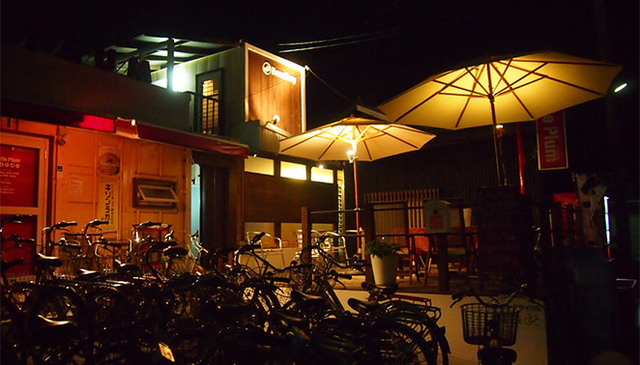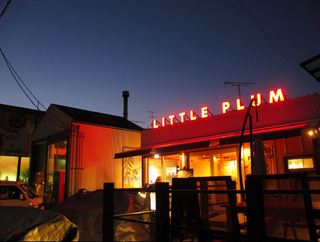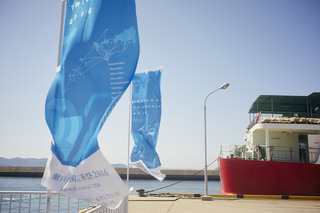There is a wide range of accommodation available in Naoshima, where today, many young people and overseas travelers gather. There are boarding houses, local inns, guest houses, hotels for women only and cottages that allow families to have some private time.
Minshuku (boarding house), Ryokan (traditional Japanese inn) and guest houses will meet the expectations of those who want to experience typical Japanese style accommodation, or who wish to have the opportunity to meet local people and other tourists during their stay. Guest houses with English-speaking staff are becoming more common around art spots. The Miyanoura Port area, where ferries come and go, is the area most crowded with hostels. Guest houses are also on the increase in the Honmura area, where the Art House Project, one of the main attractions of the town, is located. Along the coast at the entrance to the Benesse Art Site, there is an accommodation facility that uses the Naoshima International Camping Ground, which is managed by the town. The creation of this facility was supervised by the world-famous architect, Tadao Ando.
What makes guest houses in Naoshima distinctive from other touring spots is not simply that they are reasonably priced for those traveling on a budget; these guest houses are also unique in various ways. Each hostel has its own specialty for pleasing guests, for example, having an original communal space where guests can share information and experiences, while others are built in the Japanese folk style or resemble a trailer house. Enjoy staying at a facility with a rich artistic ambience, or alternatively, find accommodation at a place with a Japanese “KAWAII” atmosphere. You can also choose the type of room that best suits you: a dormitory with bunk beds, a capsule hotel, a private room, or a traditional tatami room in which you sleep on a futon. You can even sleep in your own tent inside the old style Japanese houses if you wish to do so.
The usual pay rate for hositels in Naoshima is around 2000 yen - 5000 yen per night, with some extra fees during the Setouchi Triennale or the high season in summer. While most of the hostels do not serve meals, some have meal options at an additional cost. In some cases, you may be offered coffee or tea for free and likewise bread and jam for breakfast. A kitchen, fridge and microwave are often available; however, be aware of limited food-shopping options on the island, where there is only one supermarket and a convenience store. Also make sure to have cash available at all times, as credit cards are not accepted in the majority of hostels.
Although not all staff at English-speaking accommodation venues speak English fluently, they are all committed to welcoming and hosting you as best they can. There are many opportunities to meet friendly locals and fully enjoy the hospitality they offer you in Naoshima.
Although not all staff at English-speaking accommodation venues speak English fluently, they are all committed to welcoming and hosting you as best they can. There are many opportunities to meet friendly locals and fully enjoy the hospitality they offer you in Naoshima.
7 records
 FIND SHIKOKU
FIND SHIKOKU












